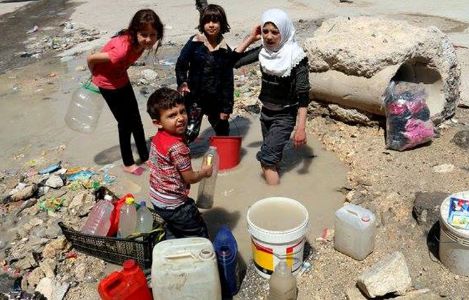
After the increase in injuries... World Health Organization warns against spreading cholera in Syria
-
Published: 14 September 2022

According to a tally released by the Syrian Ministry of Health, at least 7 people died in 3 Syrian governorates from cholera, while the disease was spreading in the country for the first time since 2009.
In a recent statement, the Ministry confirmed that the number of confirmed cholera infections was 53, spread across 5 of the country's 14 governorates, the largest in Aleppo, and reported 7 deaths, 4 in Aleppo governorate as well.
On Saturday, the Kurdish Self-Administration announced that it had recorded 3 deaths and "numerous injuries" in its areas of control in Raqqa and the western countryside of Deir ez-Zor. It was unclear whether the Ministry of Health's tally included deaths in areas of self-administration control.
WHO warned against the spread of cholera in Syria and said that "the risk of cholera spreading to other governorates is very high."
In 2008 and 2009, Syria recorded the latest outbreaks in Deir ez-Zor and Raqqa governorates, according to the World Health Organization.
Cholera usually appears in residential areas where drinking water is scarce or no sewage systems. It is often caused by eating contaminated foods or water and leads to diarrhoea and vomiting.
Syria, a severe water crisis and drought, is witnessing the destruction of water and sanitation infrastructure against the backdrop of the 11-year conflict.
The UN Humanitarian Coordinator for Syria, Imran Reza, said in a statement: "Based on a rapid assessment by health authorities and partners, the source of infection is believed to be linked to drinking unsafe water as well as using contaminated water for irrigation of the crop."
According to an April report by the United Nations Children's Fund (UNICEF), the conflict has affected nearly two thirds of water treatment plants, half of pumping stations and one third of water tanks.
About half of the population relies on alternative sources that are often unsafe to meet or supplement their water needs, while at least 70 per cent of wastewater is not treated, according to UNICEF.
